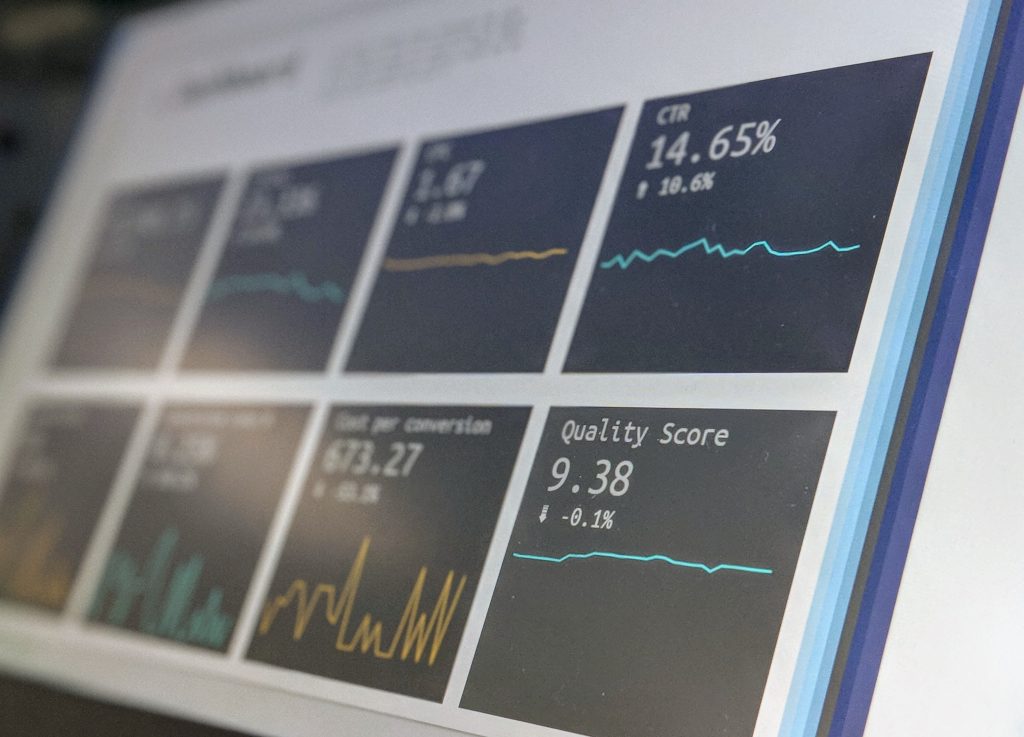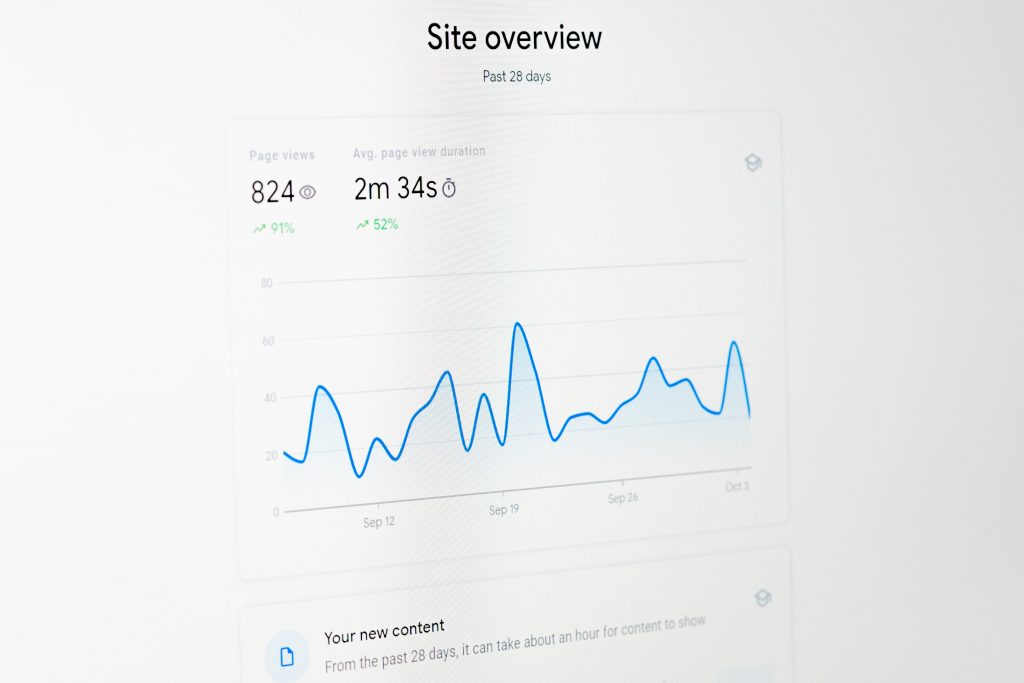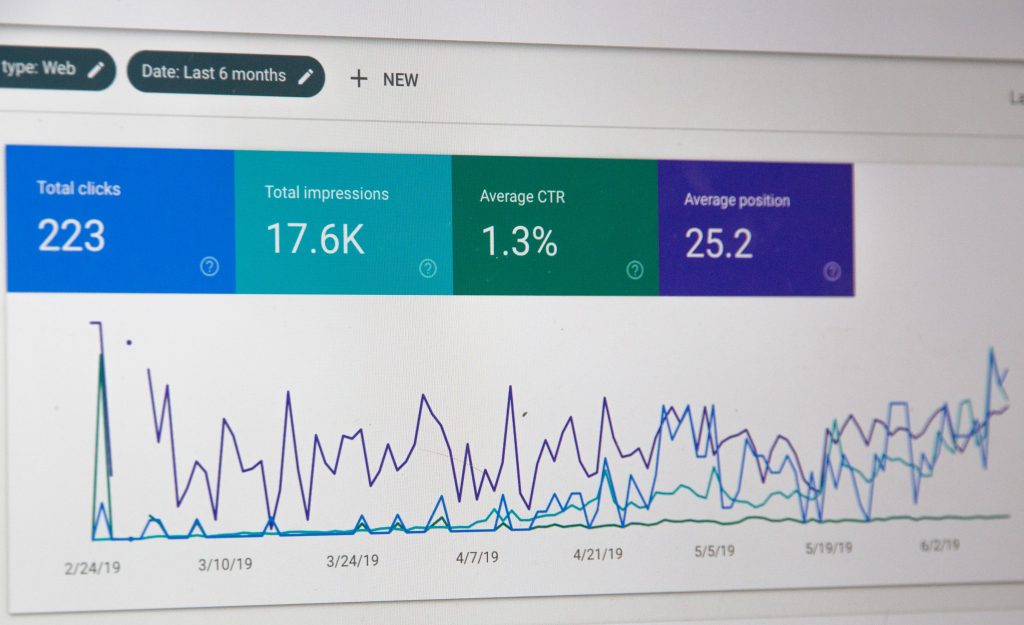Data Analytics in Marketing
22nd Mar 2023

In the modern digital era – data is king. The volume of information available to businesses of all sizes regarding their customers, competitors, and the industry at large is astounding. Whilst using this data efficiently can prove to be problematic, it nevertheless serves as a vital tool in business.
The process of gathering, analysing, and interpreting data in order to make informed decisions is known as data analytics. And it’s valuable for businesses seeking to improve their marketing performance and boost growth in their sector. Brands can discover important insights to guide their marketing decision-making and in turn deliver better results by studying consumer behaviour, market trends, and competitor activity.
In this article, we’ll examine the topic of data analytics in marketing. Along with its definition, significance, and business applications. Since understanding the fundamentals of data analytics is crucial for success in today’s competitive business environment, regardless of your level of experience as a marketer.

What is Data Analytics?
Understanding what data analytics is and how it functions before diving into its importance in marketing is critical. In other words, the process of gathering, preparing, and analysing data to find trends and insights is known as data analytics.
Data analytics can be segmented into three core categories:
- Descriptive analytics are used to summarise and describe the data. Assisting organisations in making sense of what has previously occurred. Even though descriptive analytics is useful for spotting patterns and trends, it doesn’t explain why they occur.
- To predict what will happen in the future, predictive analytics employs statistical models and machine learning algorithms. This kind of methodology can be used to discover potential opportunities or threats and forecast future trends.
- Prescriptive analytics takes predictive analytics a step further by providing recommendations for how to take action on the findings. Businesses may improve their marketing tactics and make better judgements with the aid of this kind of statistics.
Depending on a business’s needs and goals, you may utilise one or more forms of data analytics, each of which has its own strengths. Overall, businesses can get important insights that can guide their business decisions and improve performance by gathering and evaluating data from numerous sources.

Why is Data Analytics SO Important in Marketing?
Simply put, utilising data is a must for any business nowadays. Especially since we’re rapidly moving into a more and more digital world.
Businesses can gain a better understanding of their consumers’ behaviour, preferences, and needs by using data analytics. Marketing tactics can be tailored to your target audience and guarantee a higher chance of success by utilising customer data. Additionally, brands can optimise for a higher return on investment (ROI). By employing data analytics to monitor and evaluate marketing objectives – profitability and revenue may rise as a result.
Moreover, companies can be better prepared to compete in today’s crowded market when utilising data to guide their decision-making. After all, a business can outperform its competitors by staying on top of the changes in data and more importantly drawing correct conclusions & acting on them.
Overall, data analytics is crucial for companies that want to thrive in the current digital environment. Businesses can acquire important insights that help guide their marketing decisions and earn better results by utilising the power of data.
Challenges & Considerations for Data Analytics
While data analytics can bring numerous benefits for brands trying to optimise their marketing efforts, there are various challenges and considerations to be aware of.
Firstly, the sheer volume of data available is challenging. With so much data to go through, businesses may struggle to discover the most important and actionable insights. Data visualisation and mining tools can help uncover the most important trends.
Another issue is the overall quality of data. Considering that inaccurate data can lead to wrong assumptions and poor decision-making. Businesses must have a comprehensive data-gathering strategy in place, as well as solid data governance and data management policies, to ensure that their data is of high quality and to avoid costly mistakes.
Moreover, privacy and data security are also critical issues for businesses working with data. It’s a must to ensure that the way data is managed complies with the rules, such as GDPR. As well as protecting consumer data from cyber threats, which if ignored, can lead to significant damage to the brand’s reputation and, in the worst case, legal trouble. Additionally, you must think about the ethical implications of managing customer data. This involves being open & honest about how the data is acquired and utilised, as well as using it responsibly and ethically.
Overall, while data analytics can provide valuable market insights, there’re various problems and concerns to be aware of. Businesses must have solid data management policies to ensure they can effectively use the data. From the sheer volume of data available to the quality of the data itself – by overcoming these challenges you can not only improve your marketing efforts but the bottom line of the business itself.
Note: you should also be aware of the phasing out of third-party cookies and how it’s going to affect data management.

Data Analytics Tools in Marketing
After discussing the value of data analytics and how companies can use it to inform their decisions, let’s look at some of the best tools for data analytics.
Google Analytics
Google Analytics is a free online analytics tool that enables companies to monitor data such as website traffic and user behaviour. It offers useful information about consumer behaviour and may be applied to improve website content and advertising initiatives.
On a side note, the new generation of Google Analytics is going to be the new norm by the end of 2023. For that occasion, we’ve prepared an in-depth overview of Google Analytics 4 in another article.
Social Media Analytics
Businesses can choose from a wide variety of social media analytics tools. Some of the industry leaders include Hootsuite, Sprout Social, and Buffer. These tools can assist businesses to improve their social media management efforts by presenting data on follower demographics, social media engagement, and other relevant metrics.
Marketing Automation Platforms
Extensive toolkits for lead generation, lead nurturing, and customer engagement exists due to marketing automation systems like HubSpot and Marketo. These platforms frequently come with integrated analytics software that enables businesses to monitor and evaluate the effectiveness of their marketing.
Data Visualization Tools
Data visualisation tools, such as Tableau and Power BI, enable businesses to build visual representations of their data, allowing them to discover trends and insights easier. These tools can be used to build reports and dashboards that provide an in-depth look at marketing performance.
Machine Learning and AI Tools
Machine learning and artificial intelligence (AI) systems, such as IBM Watson and Google Cloud Machine Learning, can be used to evaluate massive volumes of data and forecast future trends and customer behaviour. Methods like these are especially beneficial for companies that can be considered enterprise-size and have enormous datasets that require complex analysis.

Final Thoughts
Data analytics has become crucial in the world of marketing. Businesses can acquire valuable insights into their consumers, competitors, and the market as a whole by collecting, analysing, and utilising the data.
Marketing performance can be significantly improved by leveraging the correct tools and tactics, to take full advantage of available data. However, you also must consider the challenges that come with data management. Such as data quality, privacy & security, staff’s skillset & available resources, integration with existing systems, and ethical considerations.
So, as long as you don’t ignore the challenges and find suitable methods to overcome them – data analytics can guide your marketing efforts to long-term success.



